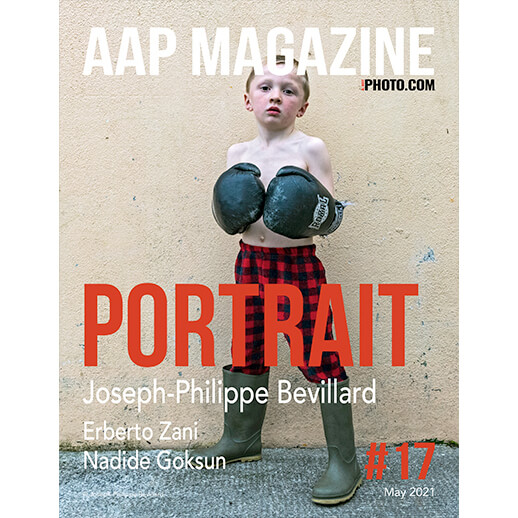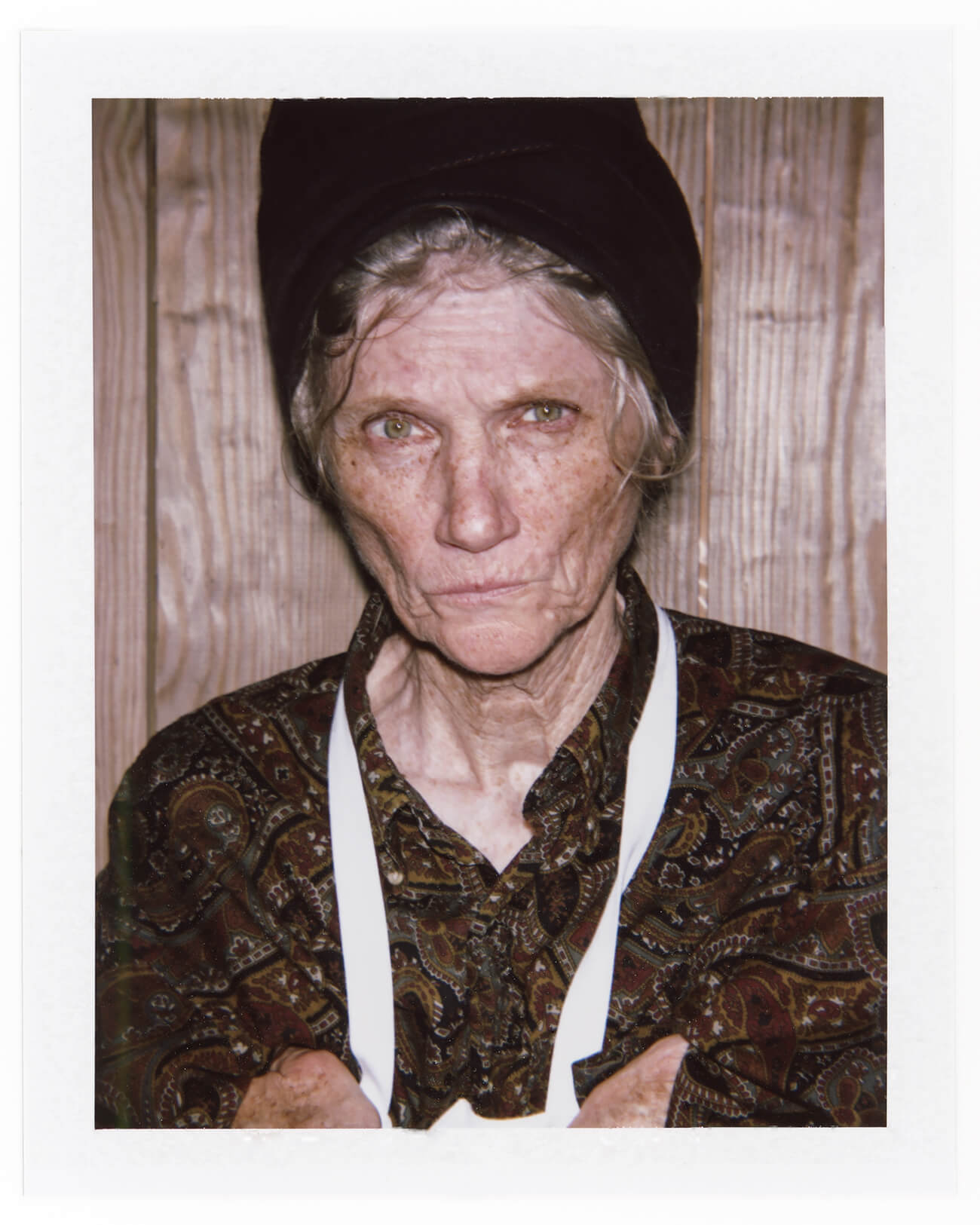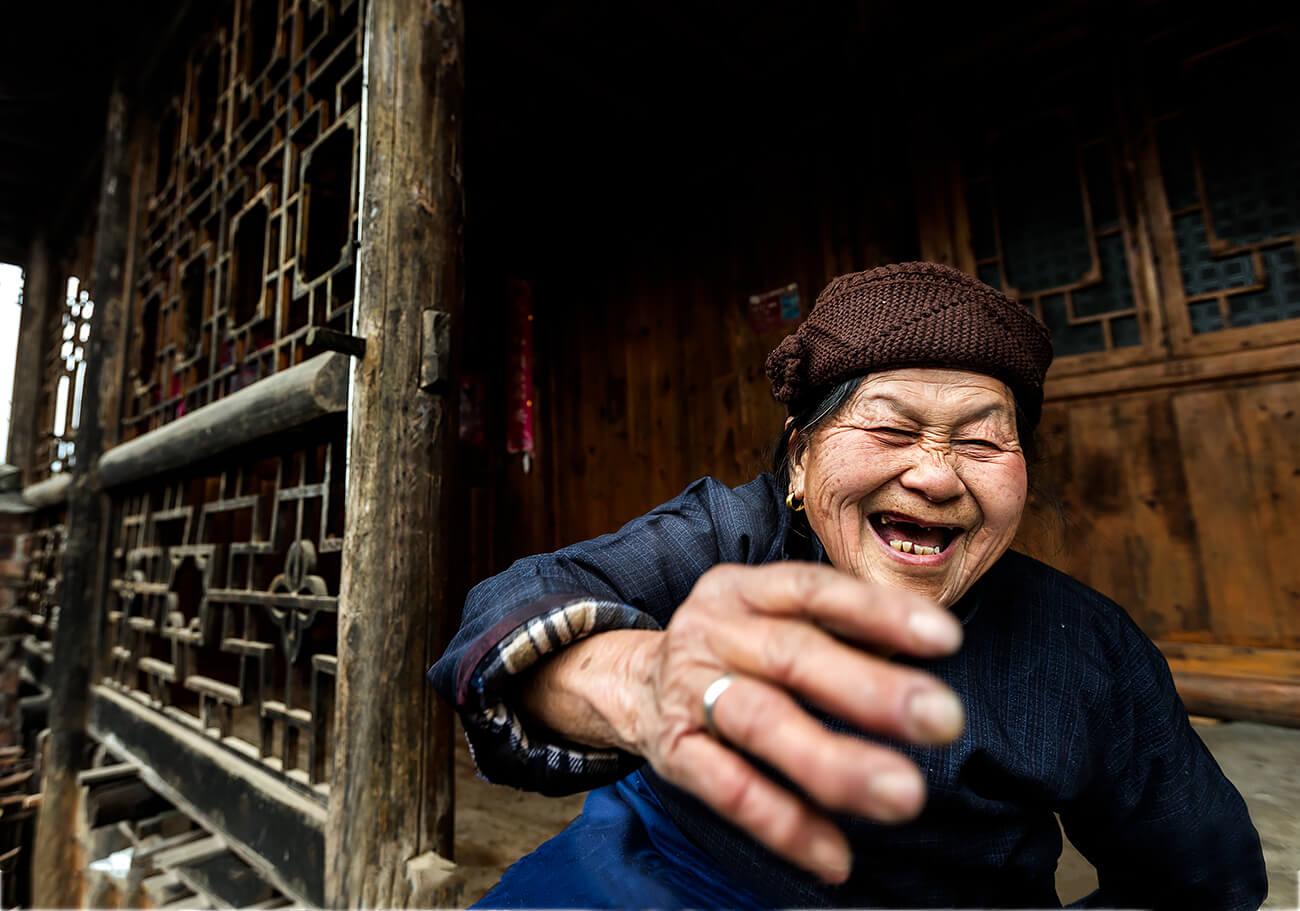We're delighted to reveal the names of the 25 talented photographers who won 'AAP Magazine #17: Portrait'
These amazing photographers come from 12 different countries, their work reflects their personal aesthetic and unique approach to portrait photography.
Portraits have never ceased to inspire photographers since the invention of photography in 1839 but it was at first a mere replica of the paintings' aesthetics for the sole privilege of the upper class.
Since then, portraits have become an ordinary object present in every household but it also became a photographic genre at the crossroads of the artist's sensibility and technical approach. Portrait photography is both a celebration of the subject and an art in itself and all the submitted worked proved just that.
A portrait is much more than just a physical representation of a person or its face. A good portrait must capture a privileged moment, when alchemy happens, allowing the photographer to capture the personality of the subject.
The selected winners showcase innovative approaches to portraiture alongside striking traditional work.
The Winner of AAP Magazine 17 Portrait is Joseph-Philippe Bevillard (Ireland)
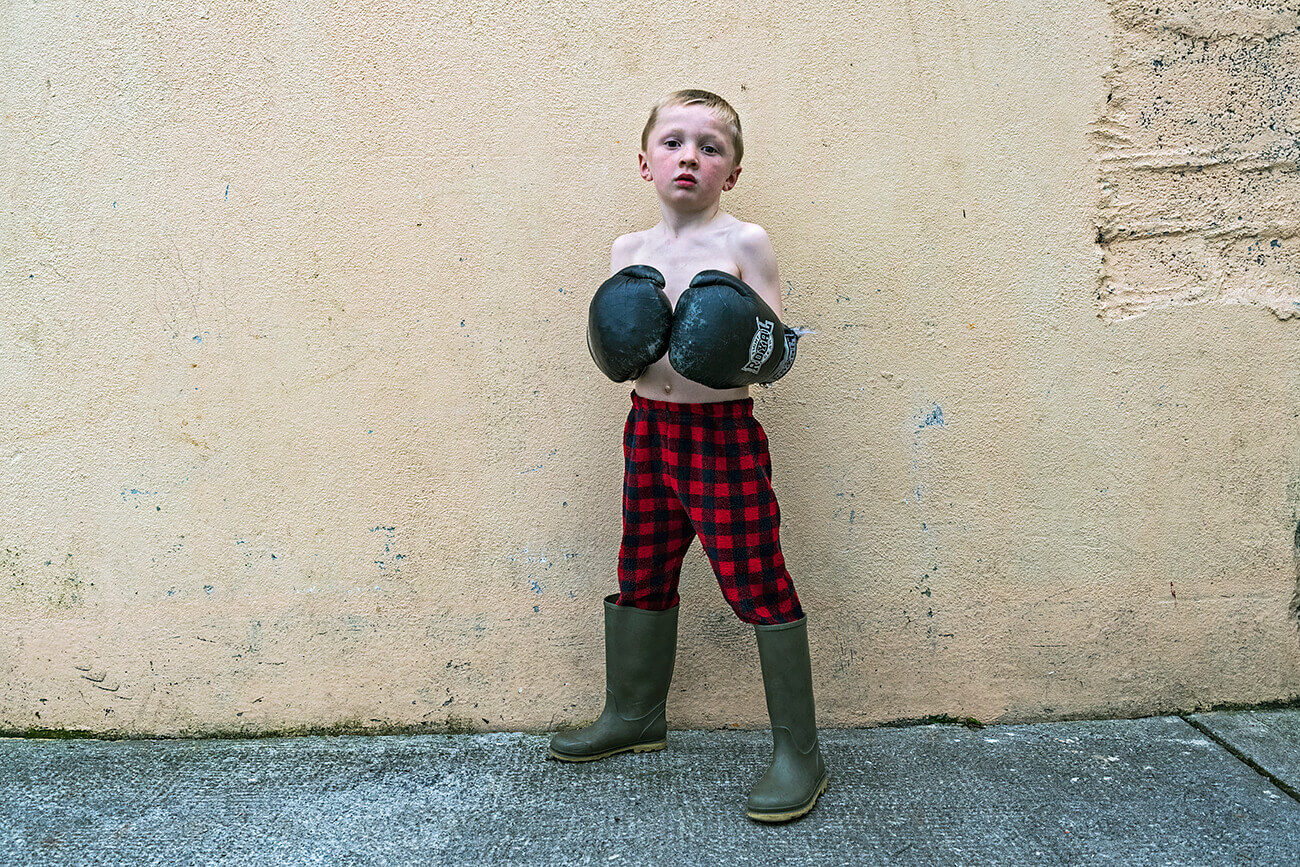
Paddy, Galway, Ireland 2019 from the series 'Mincéirs'. © Joseph-Philippe Bevillard
Like many boys and girls in the travelling communities, boxing is one of their favourite sports. His three older brothers are also boxers. Fathers will teach their children from a young age, and I often encounter young males Travellers sparring to enhance their skills.
In 2009, I started photographing the Travellers also known as Pavee or Mincéirs who are an ethnic group at a horse fair in Ireland. I returned to the horse fair the following year to meet them again and to give them some photos I had taken. They gained my trust and invited me to photograph their families and other clans. I am intrigued by their nomadic lifestyle so I decided to visit their caravans, halting sites and roadside encampments. In March 2017, Irish Travellers group have been formally recognized as an ethnic group. Today, they are still facing racism, discrimination, hardship by society and high suicide rates. Travellers are very proud of their culture. I want to represent these people through my photographs. My goal is to continue to work with these families as well as other members that I encounter, and perhaps let the settled people have more understanding of their unique culture.
Joseph-Philippe Bevillard's Website
Joseph-Philippe Bevillard on Instagram
All About Joseph-Philippe Bevillard
The Second Place Winner is Erberto Zani (Switzerland)
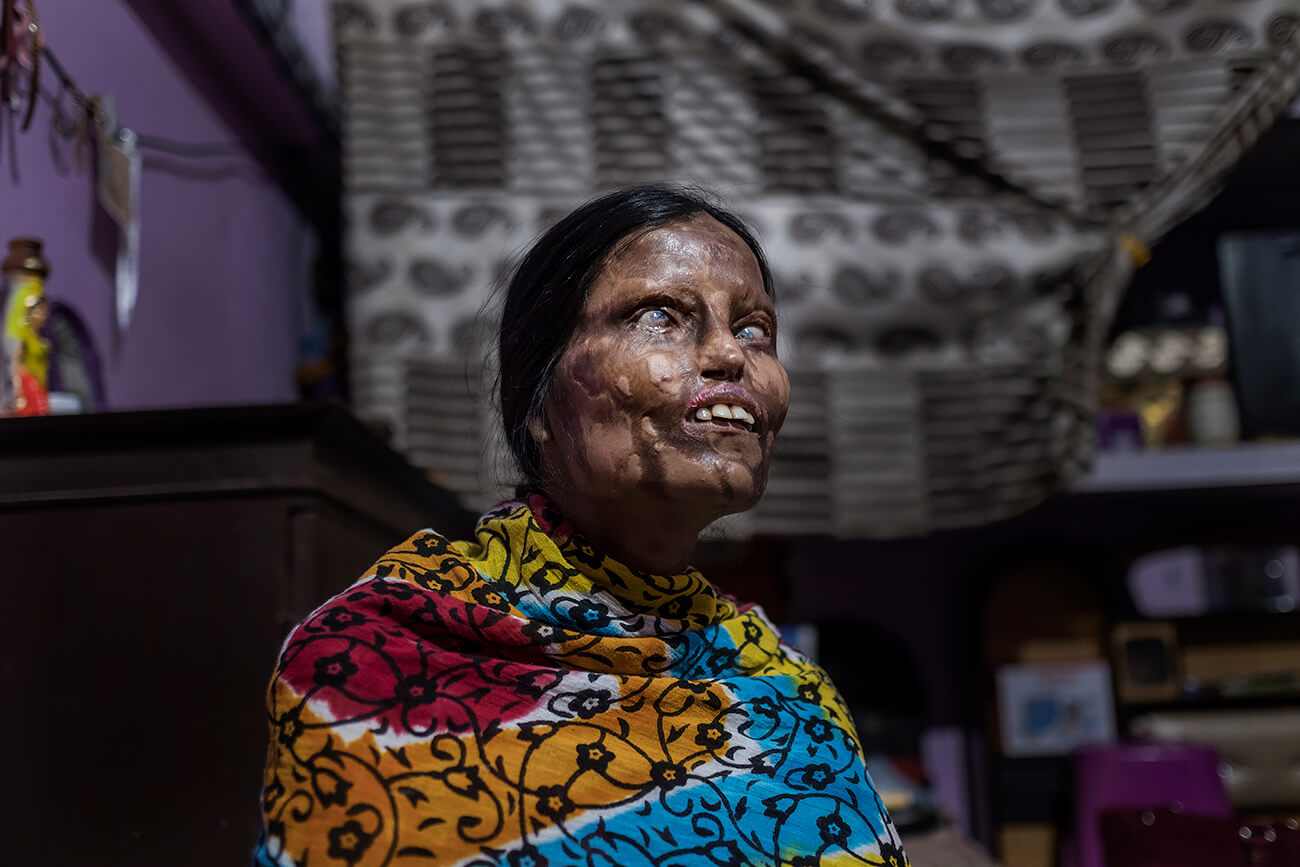
Neetu from the series Survivors © Erberto Zani
Neetu, 31 years old (Agra, India). She was just 3 years old when the father attacked her, the mother and the youngest sister of 18 months, with acid. Neetu had lost her vision in both eyes and deep scars on her face. After two months from the aggression, Neetu's sister died at hospital for problems at head because of acid. Actually Neetu works at Sheroes Hangout Cafè in Agra. The criminal still lives with the family/victims.
"Survivors" is the title of my long term documentary project about acid attack survivors around the world. The goal is put the lights on these terrible, criminal attacks.
Disfigured with industrial acid by neighbours, relatives or boyfriends-husbands for economic reasons or senseless jealousies, these people are forced to survive for years at borders of society.
Often they are considered guilty for their look, impure creatures to leave in the shadows. Destroying the face of a person using acid, criminals don't want kill, they prefer erase the identity of victims by a kind of black mark to show inevitably every day to the society: is not a coincidence if many survivors, especially women, prefer kill themself.
The body of my reportage is "one portrait, one story": with my work I try to be not only a witness for what happens in several, far, areas of our world, but also a "voice" for the victims.
Every portrait describes a deep pain. Every story tells infamous violence, years of phisical and mental torments, but also a new attitude to the life, a message of hope, a shout to stop any kind of violence and the use of acid.
In some cases cars are no more hidden, but proudly exhibit as a symbol of a war against the human insanity. A message to contrast these criminal attacks and a hope for hundreds victims, women men and sometimes also child.
Until now, for this topic I worked in Bangladesh, Uganda and India, but my project will continue: acid attacks, infact, have been reported in 38 countries of the world.
Erberto Zani's Website
Erberto Zani on Instagram
The Third Place Winner is Nadide Goksun (United States)
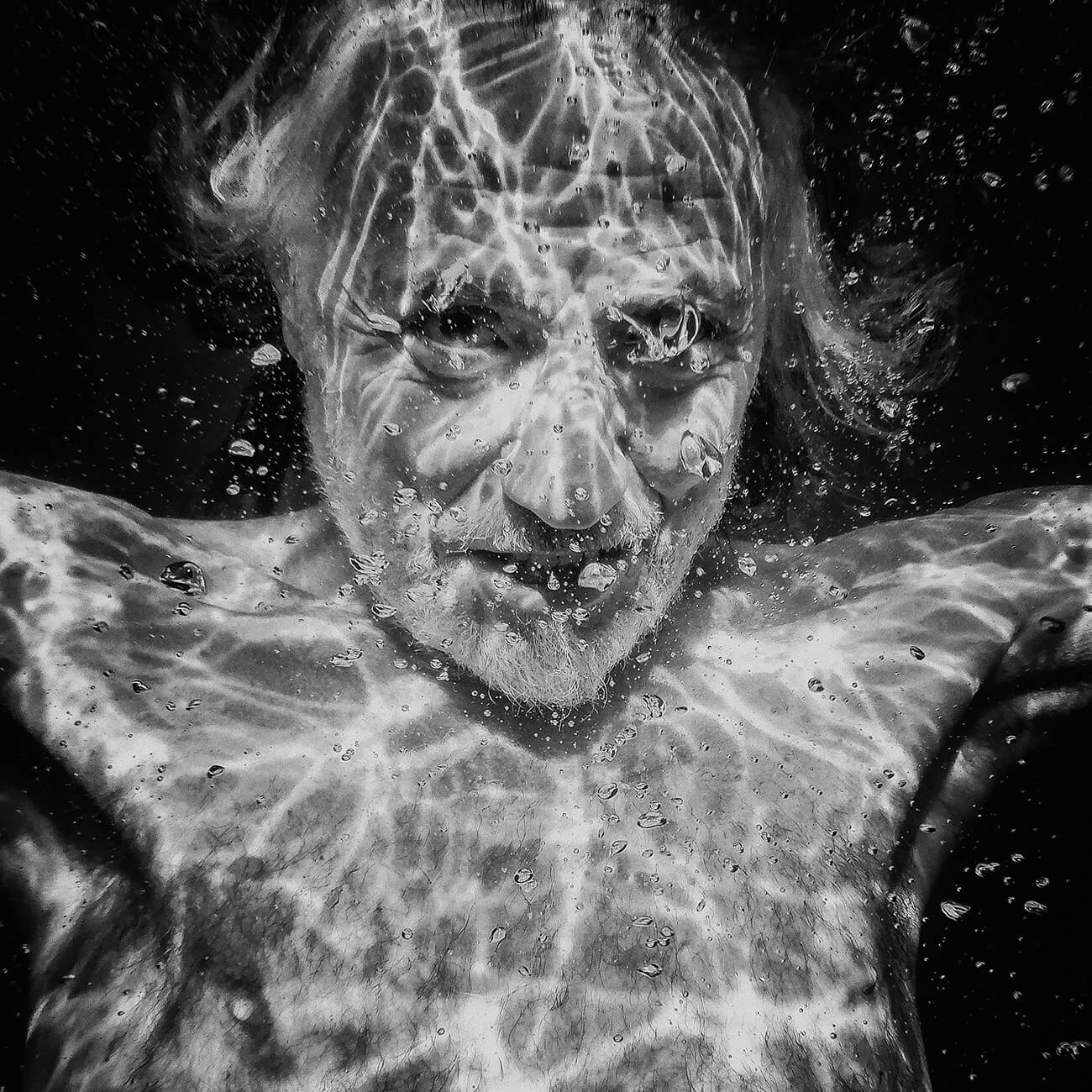
Nedret, Portrait of a Painter from the series The Man and the Sea © Nadide Goksun
Nedret is a very close painter friend. When I took his photograph under the water, the reflection of the sunlight helped me to make this abstract portrait.
Nadide Goksun's Website
Nadide Goksun on Instagram
Merit Award's Gallery:
Diane Fenster (USA)
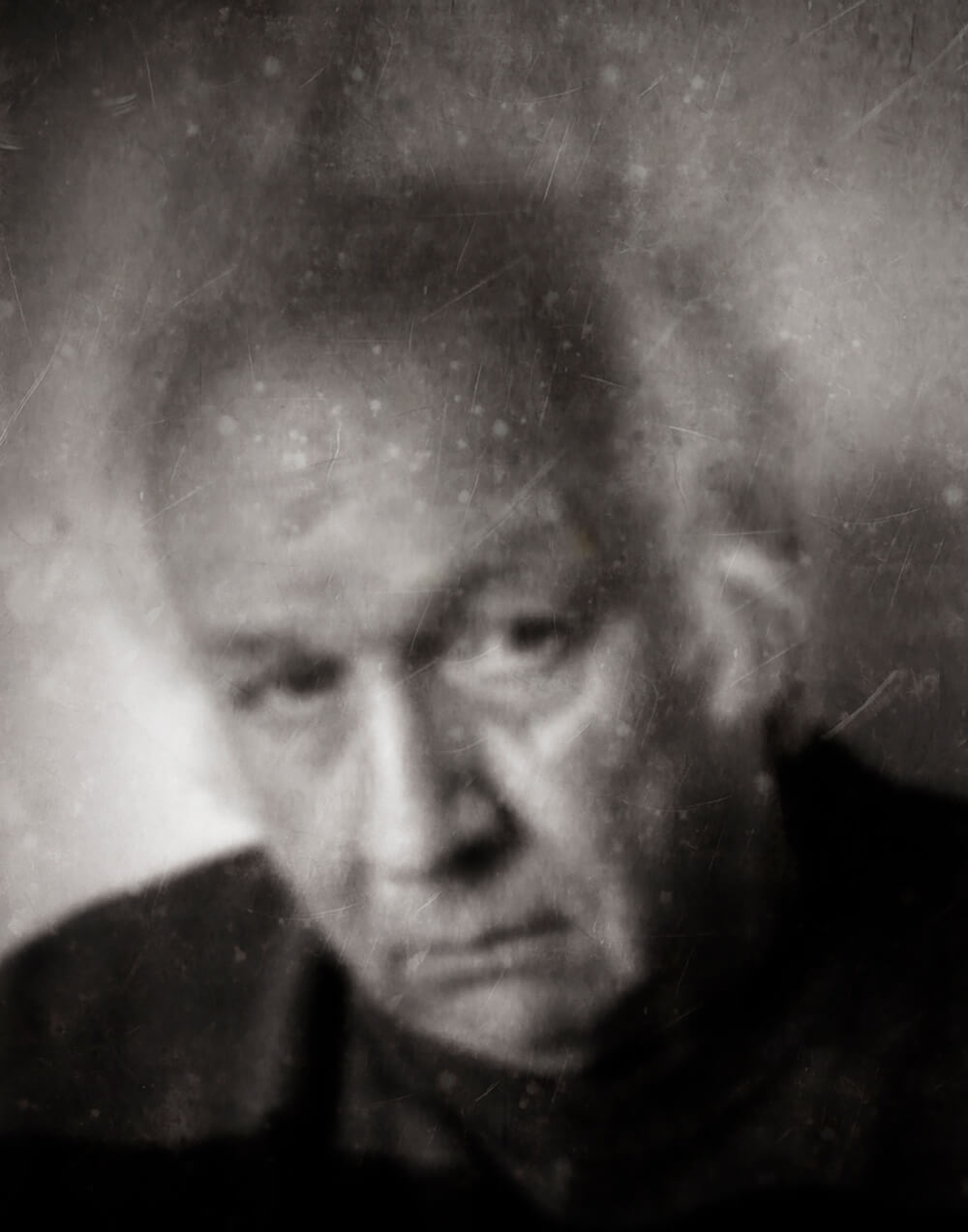
King Lear Revisited from the series 'All These Faces Have Their Memories' © Diane Fenster
This series was born out of the necessity of isolation during COVID-19. I revisited my archive of portraits and found many old friends. Some of the images had not been shown before, others were reworked.
Diane Fenster's Website
Diane Fenster on Instagram
All about Diane Fenster
Madison Casagranda (USA)
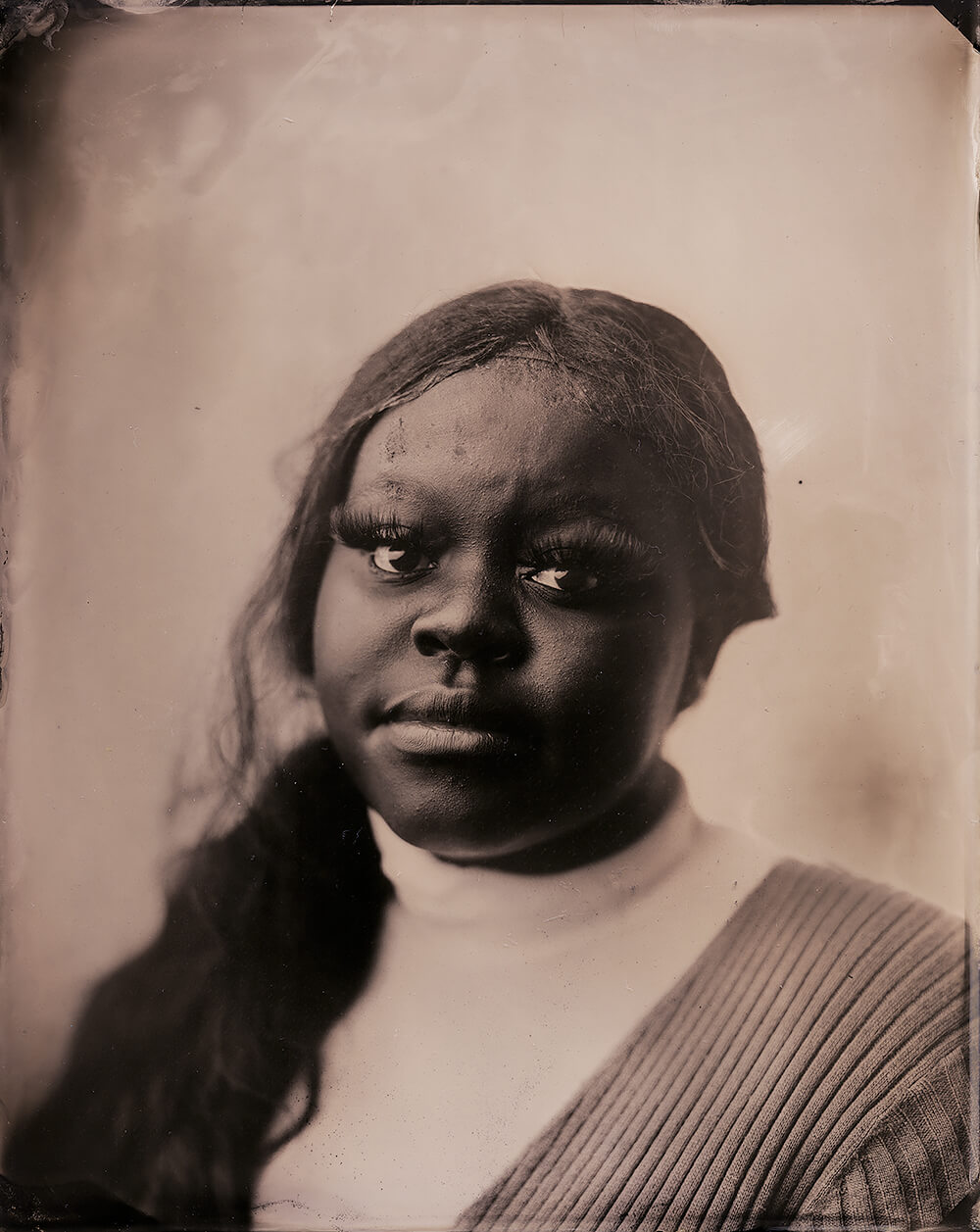
Joyce from the series The Black Stories Project © Madison Casagranda
The tintypes of the Black Stories Project embody the history of photography and the history of racial inequity specifically in the state of Utah. We can only address the current issues of systemic inequality while acknowledging and grappling with the history behind them. This project is a study about how the weight of our state's history and the lens through which it is told, affects how Black individuals experience life here today.
Madison Casagranda's Website
The Black Stories Project
Madison Casagranda on Instagram
All about Madison Casagranda
Solo Exhibition May 2021
Istvan Kerekes (Hungary)
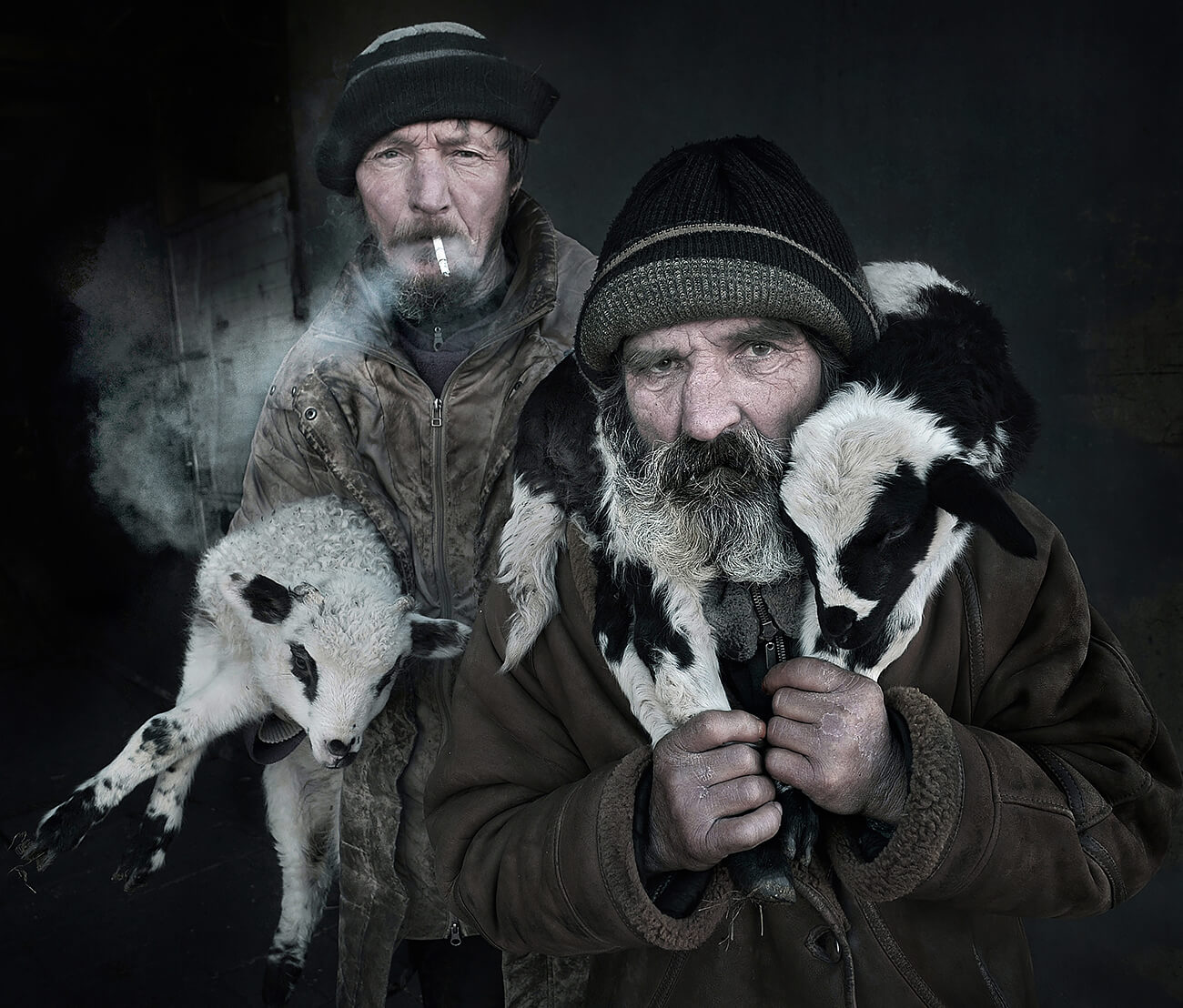
Shepherds from Transylvania © Istvan Kerekes
Transylvania is a historical region that is located in central Romania. The region of Transylvania is known for the scenery of its Carpathian landscape. The Western world commonly associates Transylvania with vampires because of the influence of Bram Stoker's novel "Dracula"and the many films the tale inspired. My picture presents shepherds from Transylvania. Walking in some parts of Transylvania one would often feel like old times come alive. There's hardly any sign of modern technology here, it is as if the time stopped, beauty and life preserved. Sheep farming has been a tradition in this region for centuries.
Istvan Kerekes' Website
All about Istvan Kerekes
Susanne Middelberg (Netherlands)
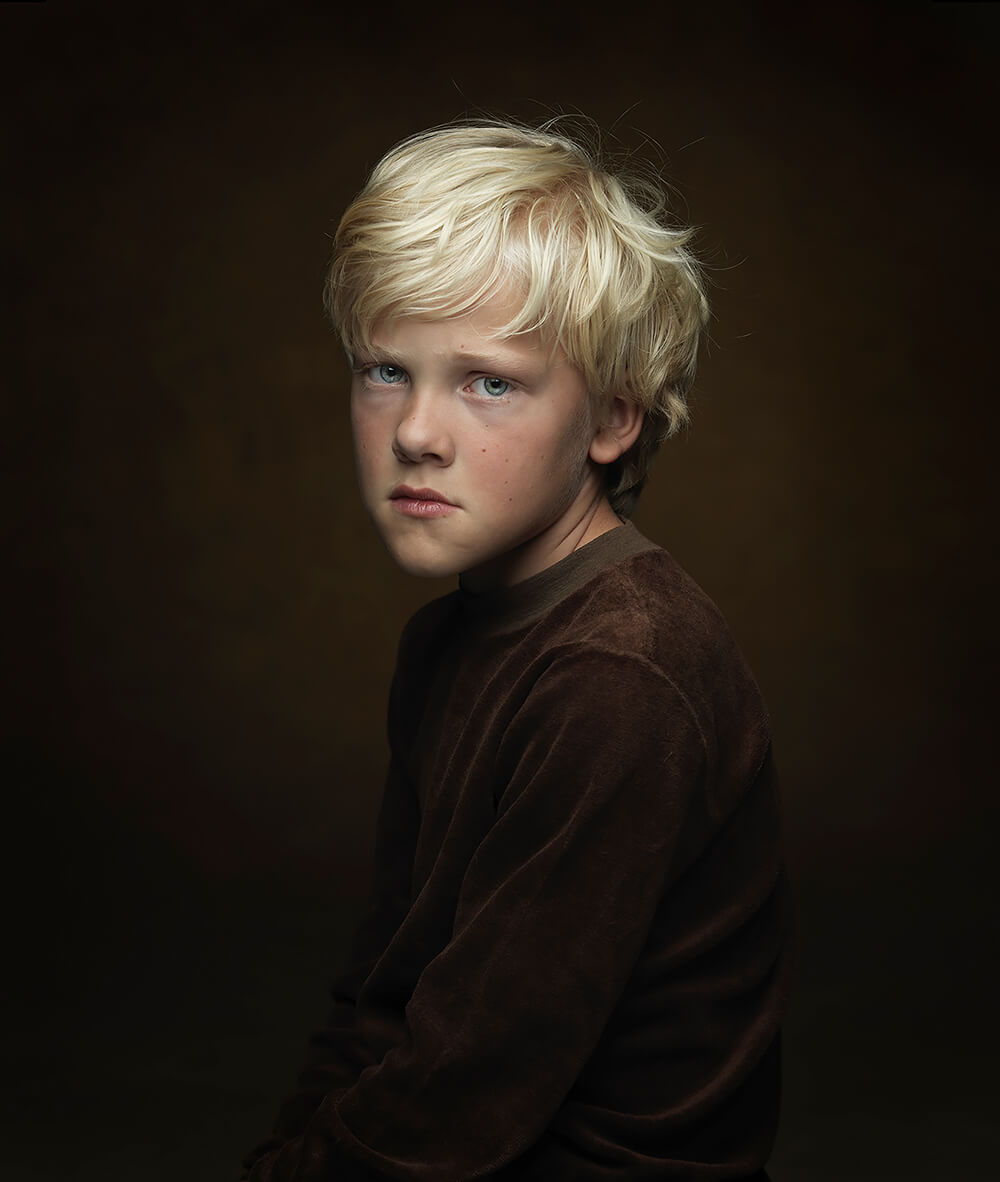
Moritz-Jorre © Susanne Middelberg
Moritz-Jorre, my son
In my portraits I am looking for honesty and vulnerability. I believe that vulnerability makes us nicer human beings and that this makes the world a little more friendly and more understanding. People who show themselves vulnerable give the other the confidence that they themselves may be who they are. I am most fascinated when I can see opposite qualities of a person at the same moment. I find this exciting because people are complex. I hope that the portrait touches something of the viewer himself.
Susanne Middelberg's Website
Susanne Middelberg on Instagram
All about Susanne Middelberg
Frank Lynch (Switzerland)
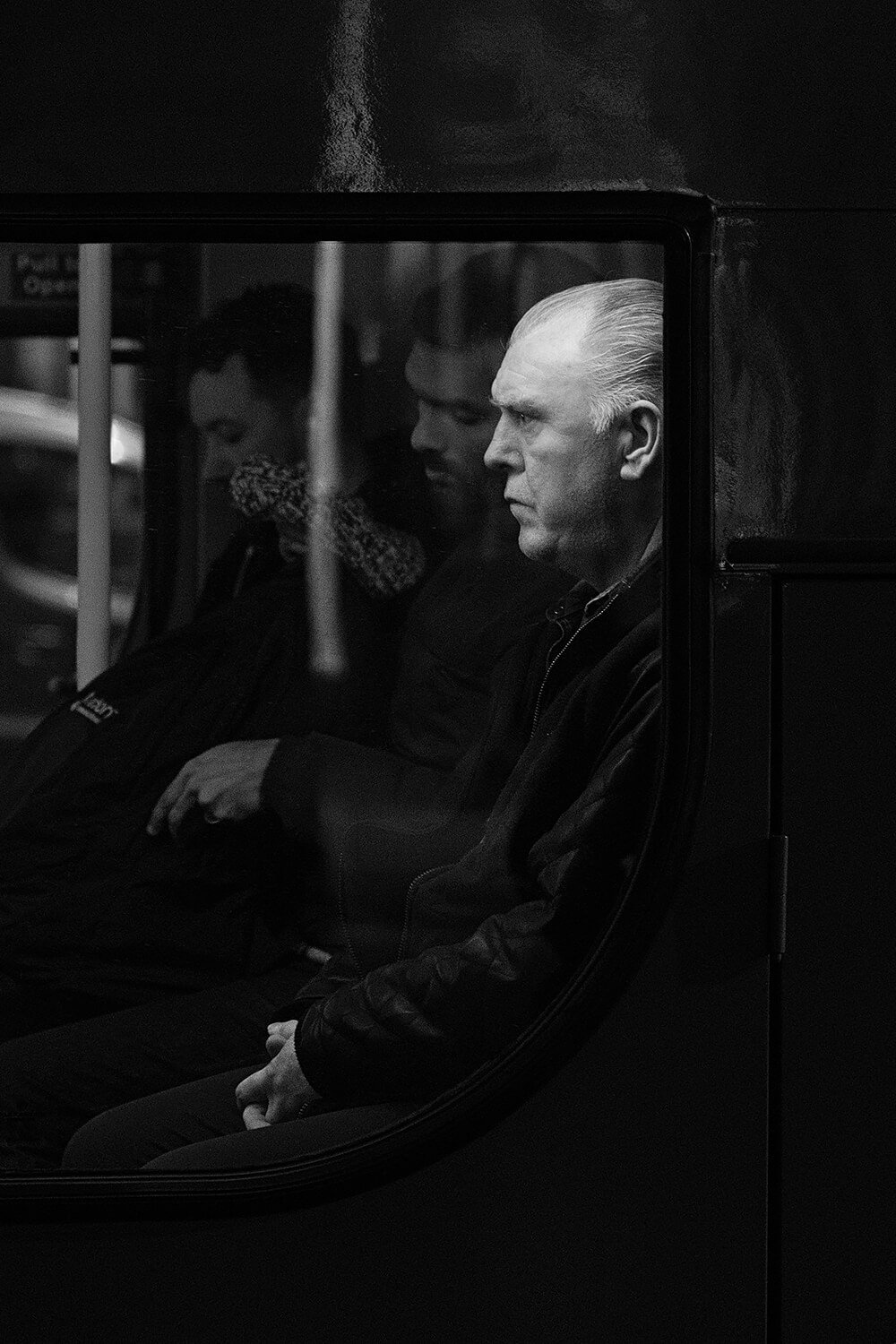
The Dublin Commute © Frank Lynch
Dubliner commuters are a hardy lot. The city has no underground and commuters have to depend on a bus system that is unreliable, infrequent and way too expensive. It can be at times soul destroying, especially when it rains and the cold wind tries to cut you in half. To add insult to injury, the real time displays at every bus stop are always lying - promising you that a bus is due in 5 minutes when in fact it has actually disappeared off the face of the earth...
Frank Lynch's Website
All about Frank Lynch
Emil Lombardo (United Kingdom)
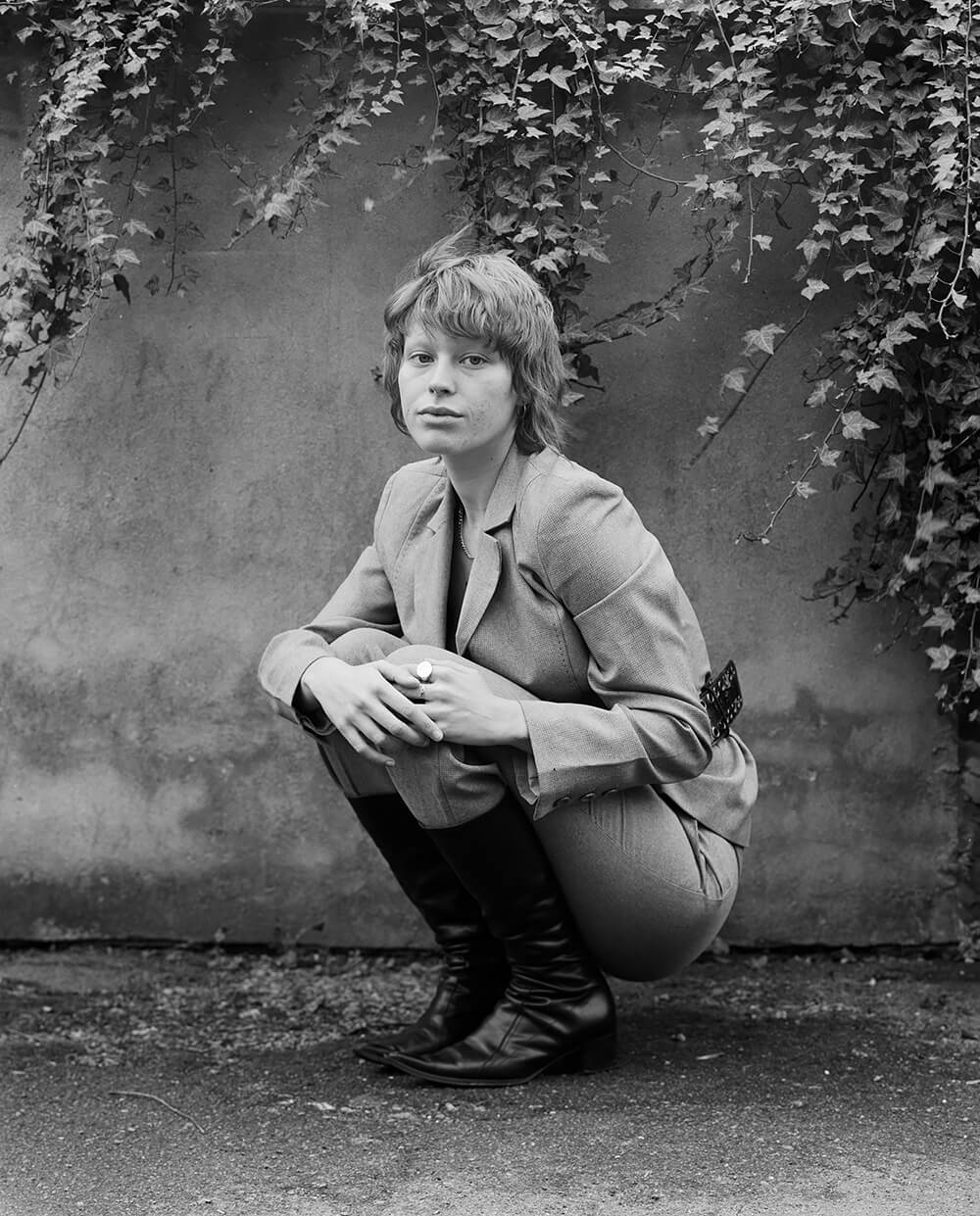
Danni (they/them) from the series 'An Unending Sunday Morning' © Emil Lombardo
From January to April 2021, I've cycled 600 km to different London areas during the UK national lockdown to photograph trans and non-binary people outside their homes.
This series document our unique lockdown experiences and feelings of being separated from our safe spaces and our chosen families.
Whilst this work is about covid, I intended to play with atemporal emotions, which we could also relate outside of the pandemic.
Hence these large-format black and white photographs suggest a sense of a parallel reality where these portraits might or might not have been taken on a calm and silent Sunday morning.
Emil Lombardo's Website
Emil Lombardo on Instagram
Jeffrey Kellner (USA)
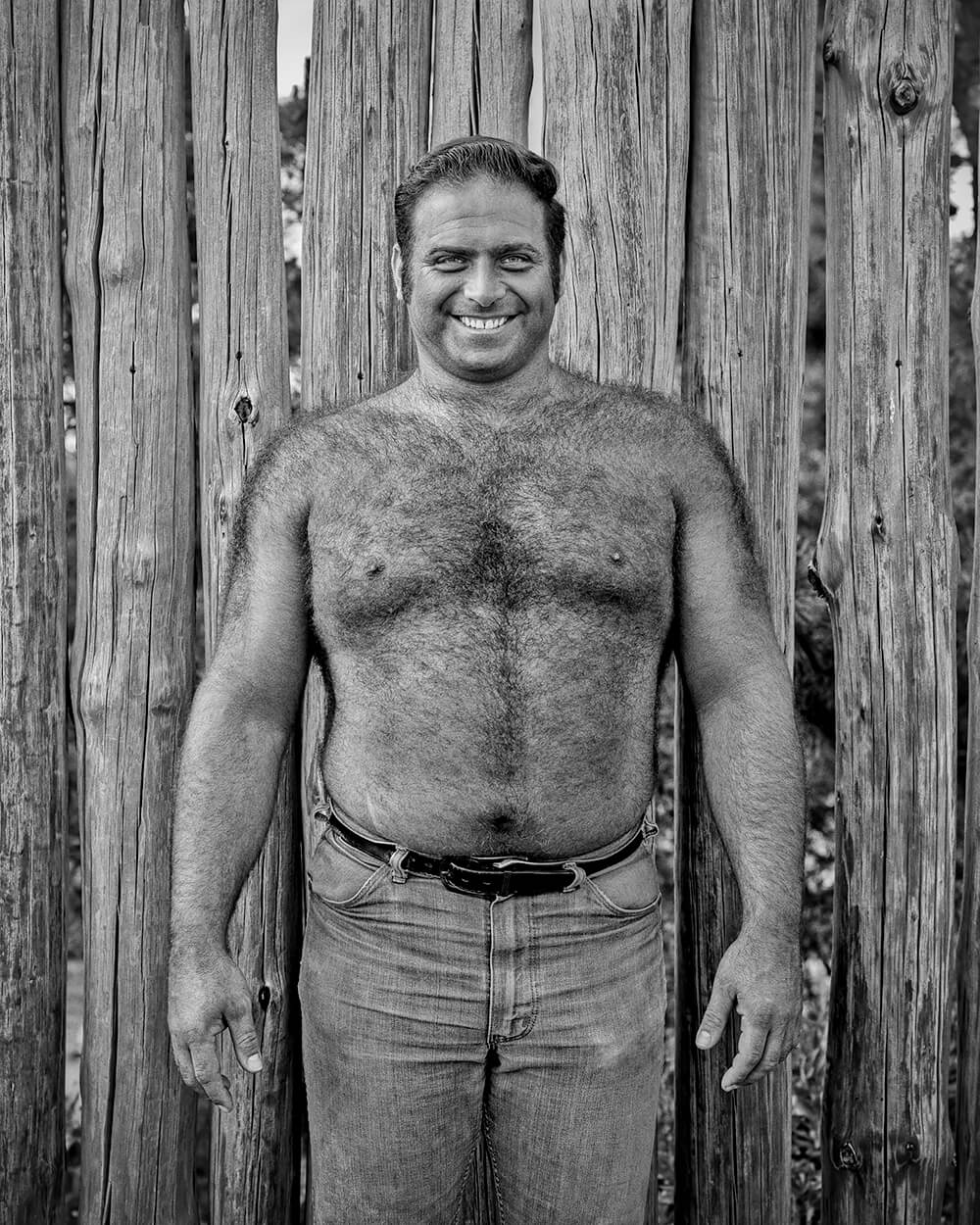
Hairy Man from the series 'Drive by Shootings' © Jeffrey Kellner
Most of my images are created on the run. I build a 3-minute relationship, shoot medium format film, take 2 to 3 exposures, and I'm gone. I don't tell them to smile.
Jeffrey Kellner's Website
Jeffrey Kellner on Instagram
Gail Just (USA)
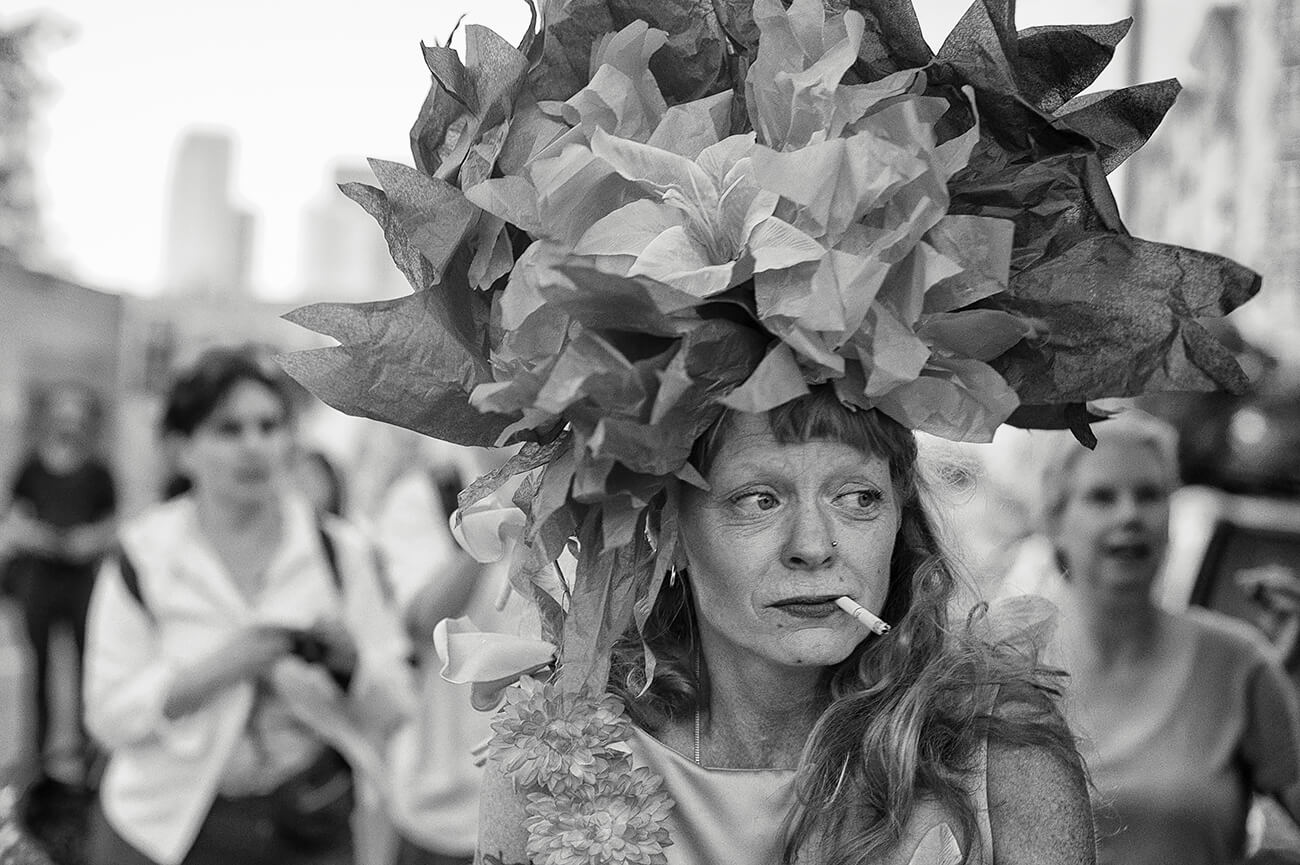
Arts District from the series 'The Unsuspecting Portrait' © Gail Just
The Downtown Los Angeles Arts District community turns out to celebrate Bloomfest, in honor of the late Joel Bloom, he was considered the unofficial Mayor of the district.
Gail Just's Website
Jacopo Maria Della Valle (Italy)
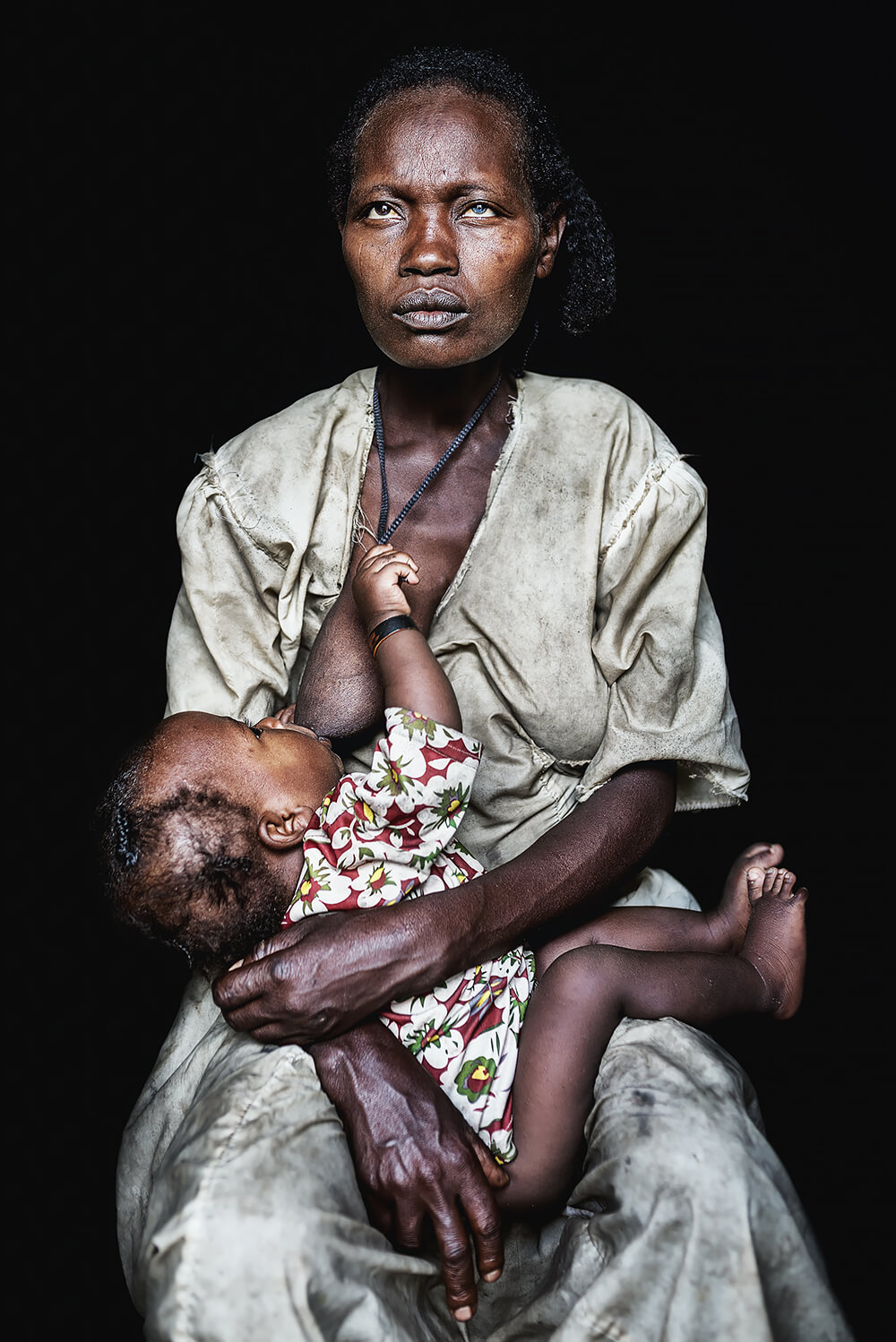
Fetayo © Jacopo Maria Della Valle
At the end of my last trip to Ethiopia I arrived in the city of Jinka, where I met Abushe, the boy famous for his blue eyes like the sky.
I went around the village in his company, reaching the far outskirts. There, in a small agglomeration of scattered houses, was his house: a small room of few square meters where Abushe lives with his mother, 4 brothers and 3 sisters. Moving the curtain at the entrance this is the scene that arose: a woman intent on nursing her youngest daughter in a plastic pose, almost like a caravaggesque Madonna. Little light in the room, only a beam of light illuminating the scene. It's a strong image, but which fully tells the disadvantaged conditions of the majority of the Ethiopian population.
Jacopo Maria Della Valle's Website
Jacopo Maria Della Valle on Instagram
All about Jacopo Maria Della Valle
Michael Joseph (USA)
This is a polaroid Big Shot portrait made on the street in Provincetown, MA from the series 'Wild West of the East.' From an empty space where the Pilgrims first landed, to a Portuguese fishing village, to an artist’s colony and now a LGBTQ+ community Provincetown has always been a transformative space. This tradition of acceptance lies deep. To many, it is a found Neverland where the concept of 'play' is encouraged, and the confines of society are stripped away.
Michael Joseph's Website
Michael Joseph on Instagram
All about Michael Joseph
Lost and Found
Chiara Felmini (Italy)
In the Guizhou region there are still several villages with wooden houses. Going around the alleys and being invited to enter is practically the norm. With this lady the feeling was immediate and her laughter was contagious; I think she told me almost everything about her life, obviously in Chinese. Obviously I did not understand anything and obviously
for the understanding this did not matter. Laughter is an antidote to crying, celebrated in mythology by Demetra, in memory and symbol of laughter as a unique gift of the gods to the human species. This woman for me was Demetra.
Chiara Felmini's Website
Wednesday Aja (USA)
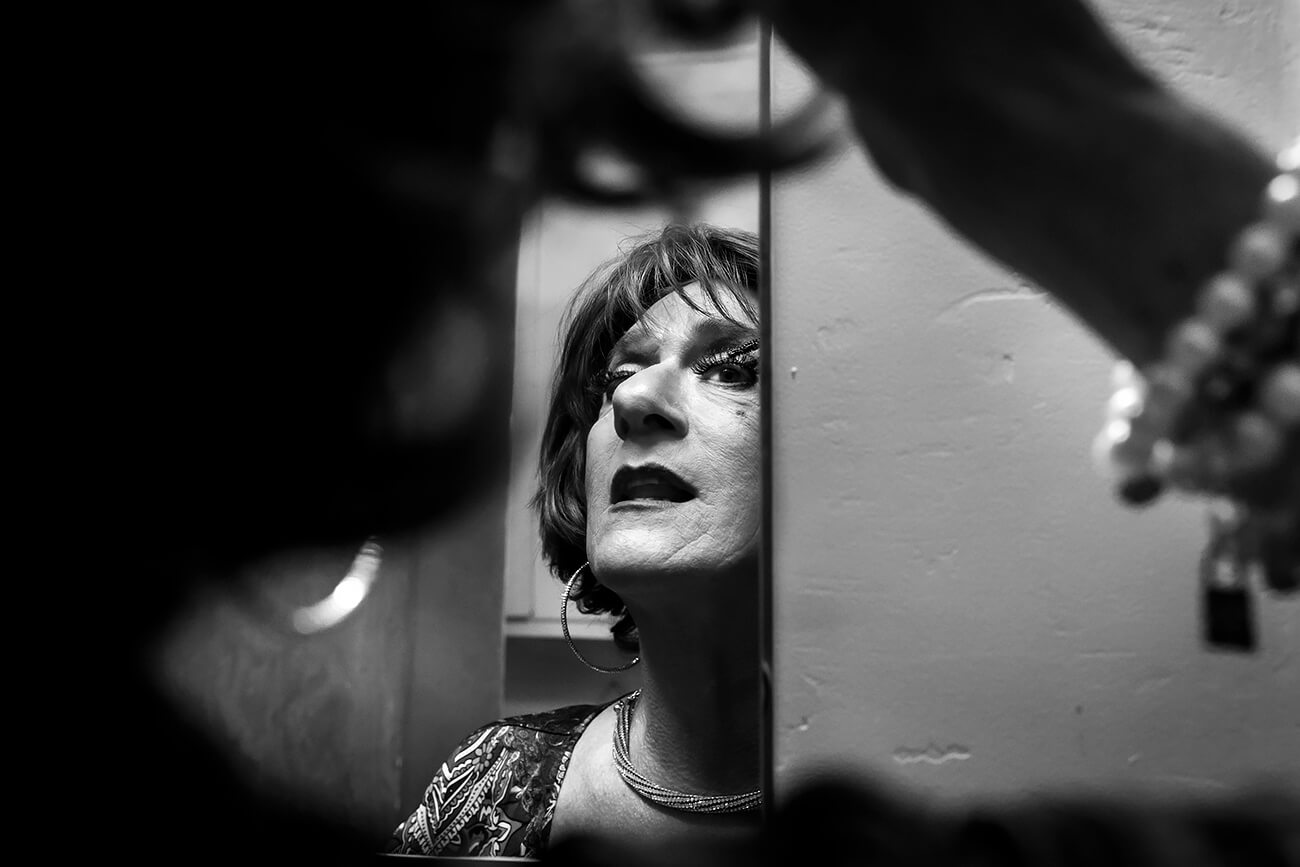
Dress Rehearsal from the series ' Endora’s Dress Rehearsal' © Wednesday Aja
What does it take to be a working drag queen? From Drag Bingo on Wednesday nights to
Friday's live improvised cabaret act, 'Endora's Dress Rehearsal' takes a peek into the day-today
life of Endora; chanteuse, diva, and local drag darling.
Wednesday Aja's Website
Laurent de Gebhardt (Réunion Island)
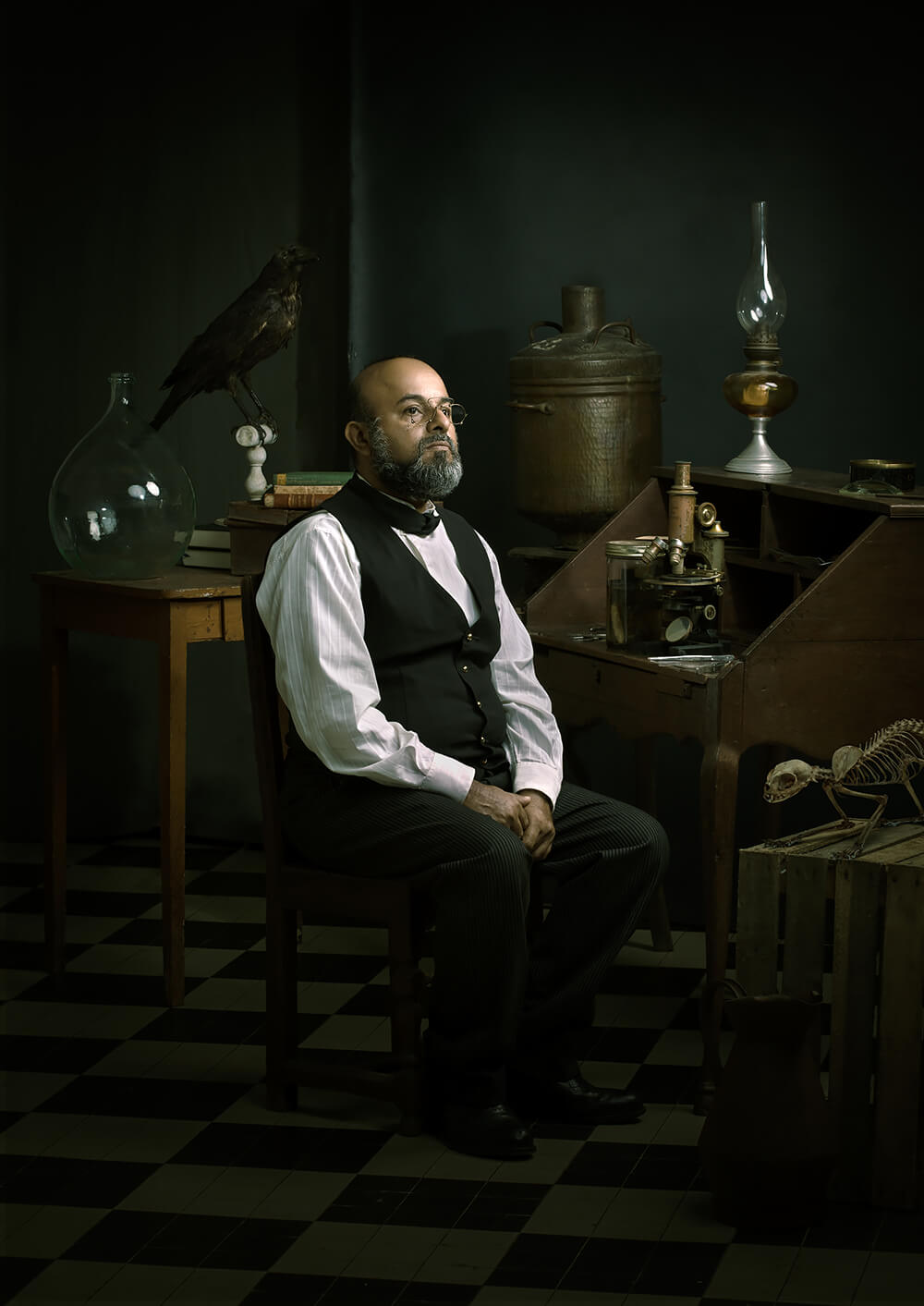
Grey Currawong from the series 'Taxidermus' © Laurent de Gebhardt
I was inspired by a painting from the Musée d'Orsay for this photo: Louis Pasteur by Albert Gustav Edelfelt (1885). I wanted a clear / obscure atmosphere and a certain gravity in the character. Fakroudine Adamdjy, mediation agent at the Natural History Museum of St Denis, amazed me by fitting perfectly into the character.
Taxidermus is a series produced with the staff of the St-Denis Natural History Museum (Reunion Island).
I wanted to play with the same characteristic codes of the first photos of the 19th century. The characters
created pose with studied seriousness, in classic postures based on carefully chosen elements: armchair,
desk, mirror, easel, - The stories of adventure and travel nourished my imagination from childhood and I
found behind the scenes of the museum an atmosphere suitable for reviving these stories. I installed lights
to recreate these chiaroscuro from the Flemish school and with the assistance of a team I dressed and
styled these characters using authentic period costumes.
Laurent de Gebhardt's Website
Vincent Karcher (Canada)
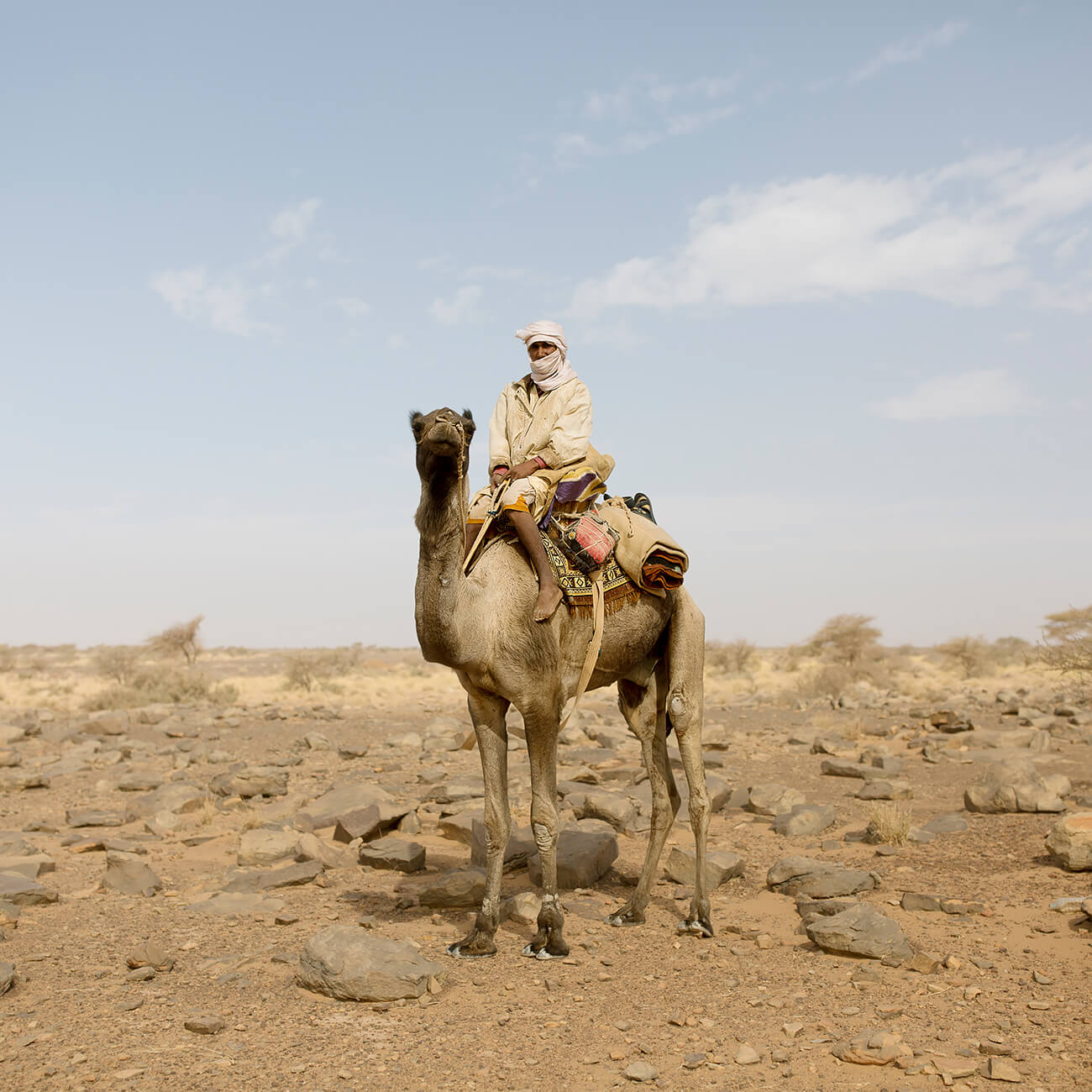
Mauritanian Tuareg © Vincent Karcher
From a Series achieved in Mauritania during an overland travel in north and west Africa.
I met this Nomad and his camel, while driving to the east of Mauritania.
On my way to west Africa, I was trying to skip the main road, and adventure myself into the deeper
Sahara through the east and finally going south from there. This man was crossing the desert on
camelback.
Vincent Karcher's Website
Antoine Janot (France)
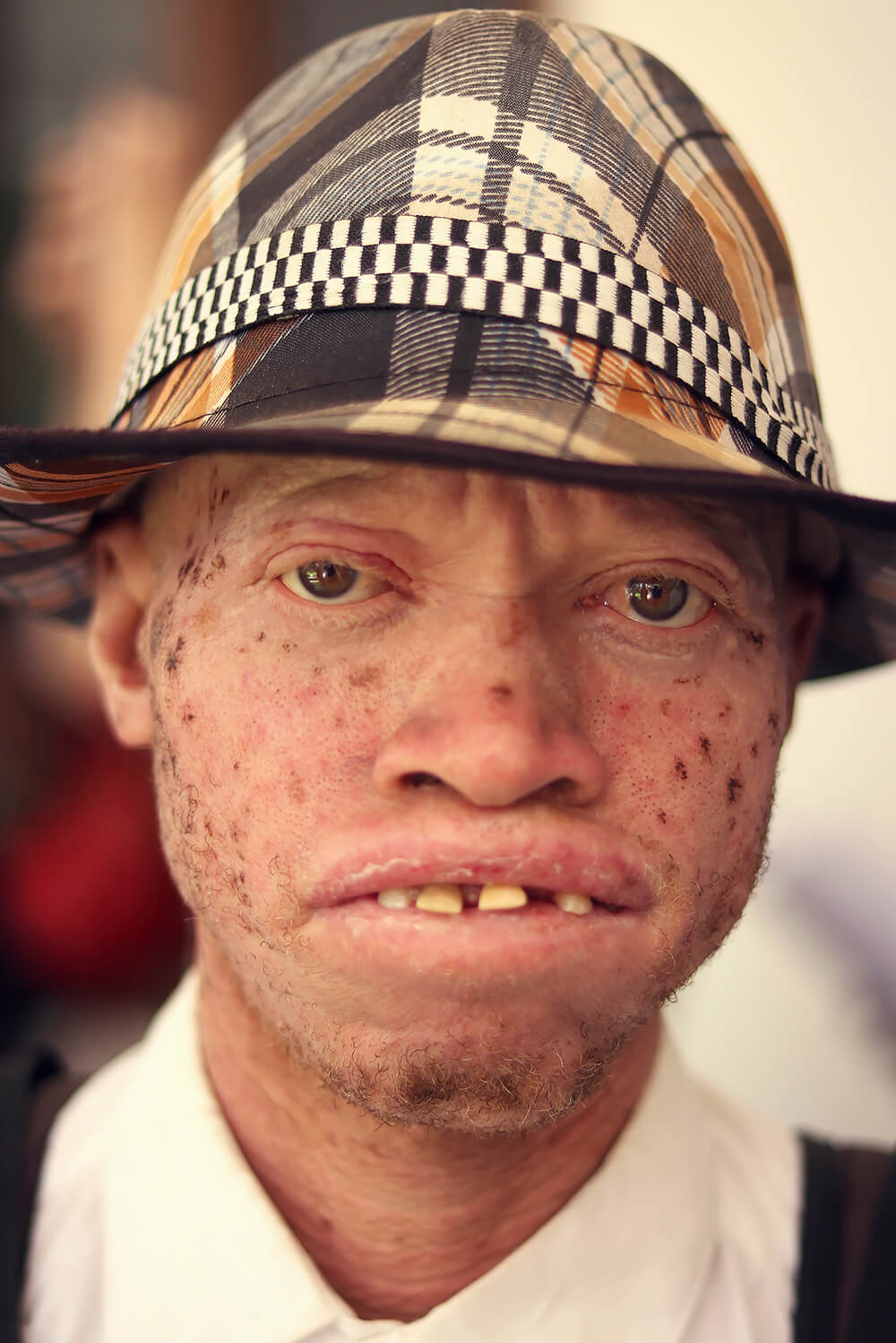
Beyond the skin from the series ' Without Colors' © Vincent Karcher
This picture was taken during the 2019 edition of World Albinism Day at the United Nations Information
Center in Dakar.
In Senegal, 95% of People Living with Albinism die before the age of 30 because of skin cancer. A vast
majority of these people are illiterate and forced into begging because of the discrimination and
persecution they suffer from.
In West Africa, it is a traditional belief that having sexual intercourse with an albino can cure AIDS.
Many People Living with Albinism are even mutilated and killed, as having a hand of theirs is believed to
bring good luck.
Antoine Janot's Website
William Ropp (France)
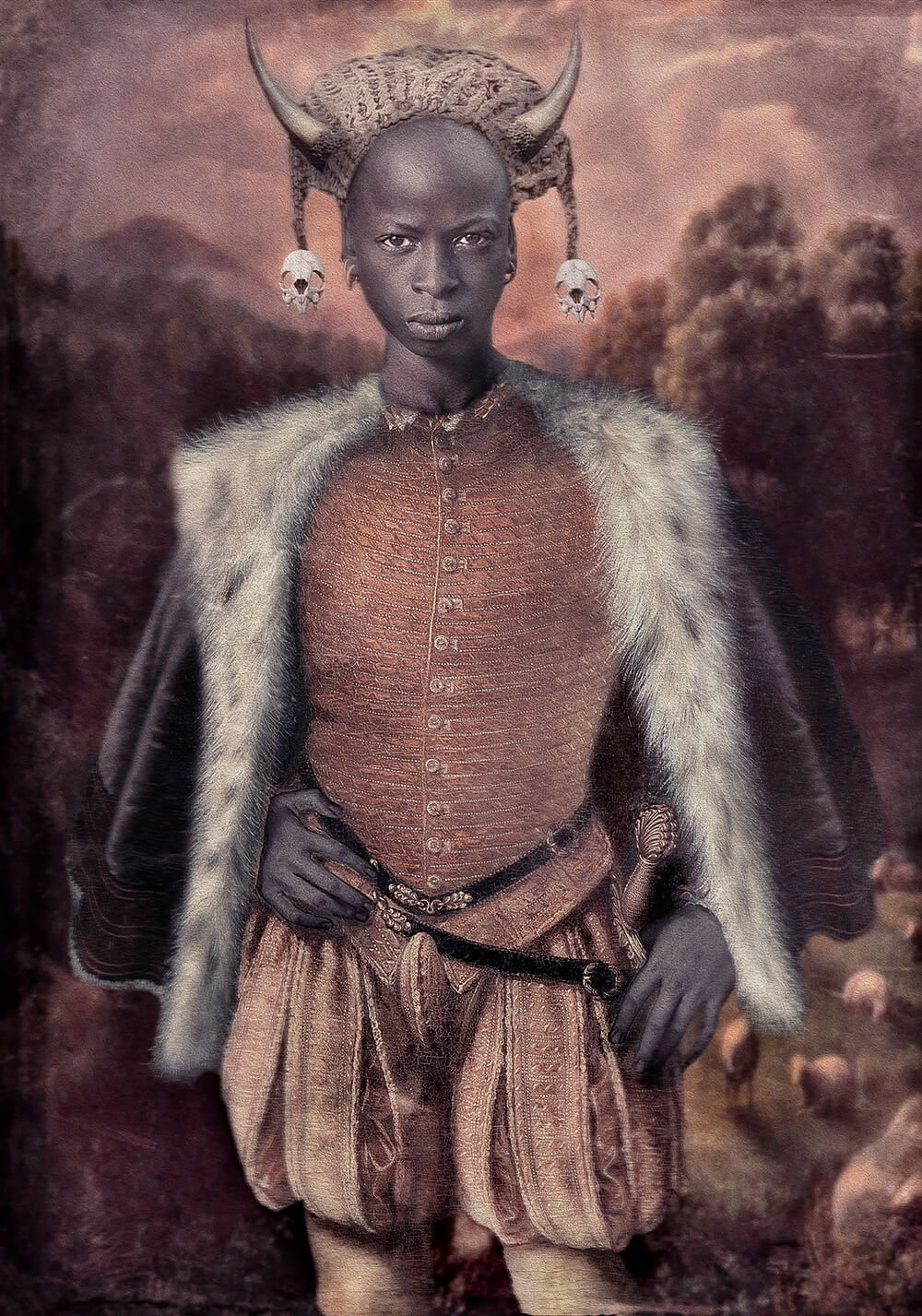
Noble Man from the series ' Noble Beings' © William Ropp
Noble Men. Noble Women. Noble Children… Using a visual metaphor, William Ropp features a nobility
that is primarily of character. He shows us Humans whose nobility resides in the core being. A worthy
heir to the Masters of classical painting, Ropp confers his models a magnificence in line with their
humble, yet noble attitude. Costumes and accessories emphasize the lordly figures of the sitters: ageless
faces whose traits match exquisitely with classical aesthetics. Adorned with precious clothes, Ropp's
models beam with majesty. Besides its apparent continuity, Ropp's work plants the seed for intercultural
dialogue: mixing up styles, eras, and genders, the photographer invites the viewer to reflect on Alterity.
Fine robes, ruffles, and frill exalted by court portraits speak of the vanity of a ruling class in search of
immortality. Human dignity, however, is timeless. It is not to be sought in nobility titles, nor to be found
in fancy attire. In Ropp's paradoxical language, external signs of wealth are of little merit. Beyond the
decorum, the fundamental dignity of his models resides in their core Being and intrinsic dignity.
Unveiling the heart underneath the robe, Ropp takes us from one reality to another. Blue-blooded black
men sitting with majesty - the unease emerges not so much from the skillful collage as from the accuracy
of these portraits, demonstrating that men and women of such modest background are too, eligible for
honors. Ropp's work brings up to light a core nobility, a heart-centered sovereignty. By covering his
models with precious attires, the photographer hereby uncovers their true nobleness. Honoring these men,
women, and children, his work resonates like a silent yet potent hymn, a praise to humanity. Masterfully
crafting light, the photographer draws on his early techniques to bring out his subjects, illuminating to the
depths of their soul. Through these portraits of Ethiopian men and women, Ropp also pays a subtle tribute
to Lucy, ancestor unconcerned with fashions, witness to a humanity getting lost in frivolities. The viewer
is invited to look beyond appearances. Challenging perceptions, what emerges from Ropp's Noblemen
and African Ladies is a raw, inherent nobility showing itself for what it is. Humble yet majestic,
profoundly human.
A Kahn
William Ropp's Website
Joe Buergi (Switzerland)
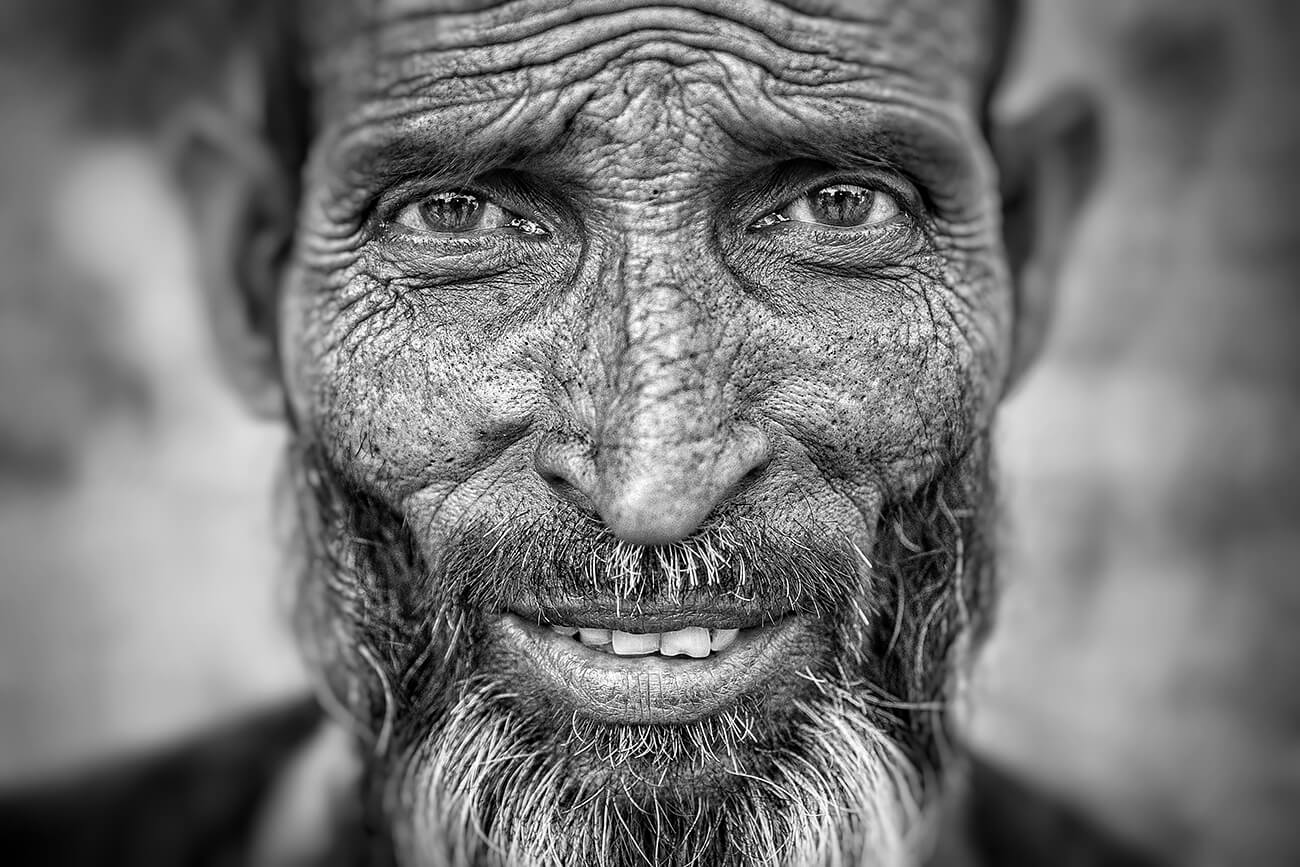
Portrait of a dockworker from Bangladesh from the series ' Haunting portraits' © Joe Buergi
The people are laborers who work either at the port or in the shipyards of Dhaka. The work is
hard and demanding. The conditions are hot and often dangerous. So are the faces of the people; all tell a
different story. All ages work together. Nevertheless, the people were friendly and willing to be
photographed.
Joe Buergi's Website
Gabriella Aragon (USA)
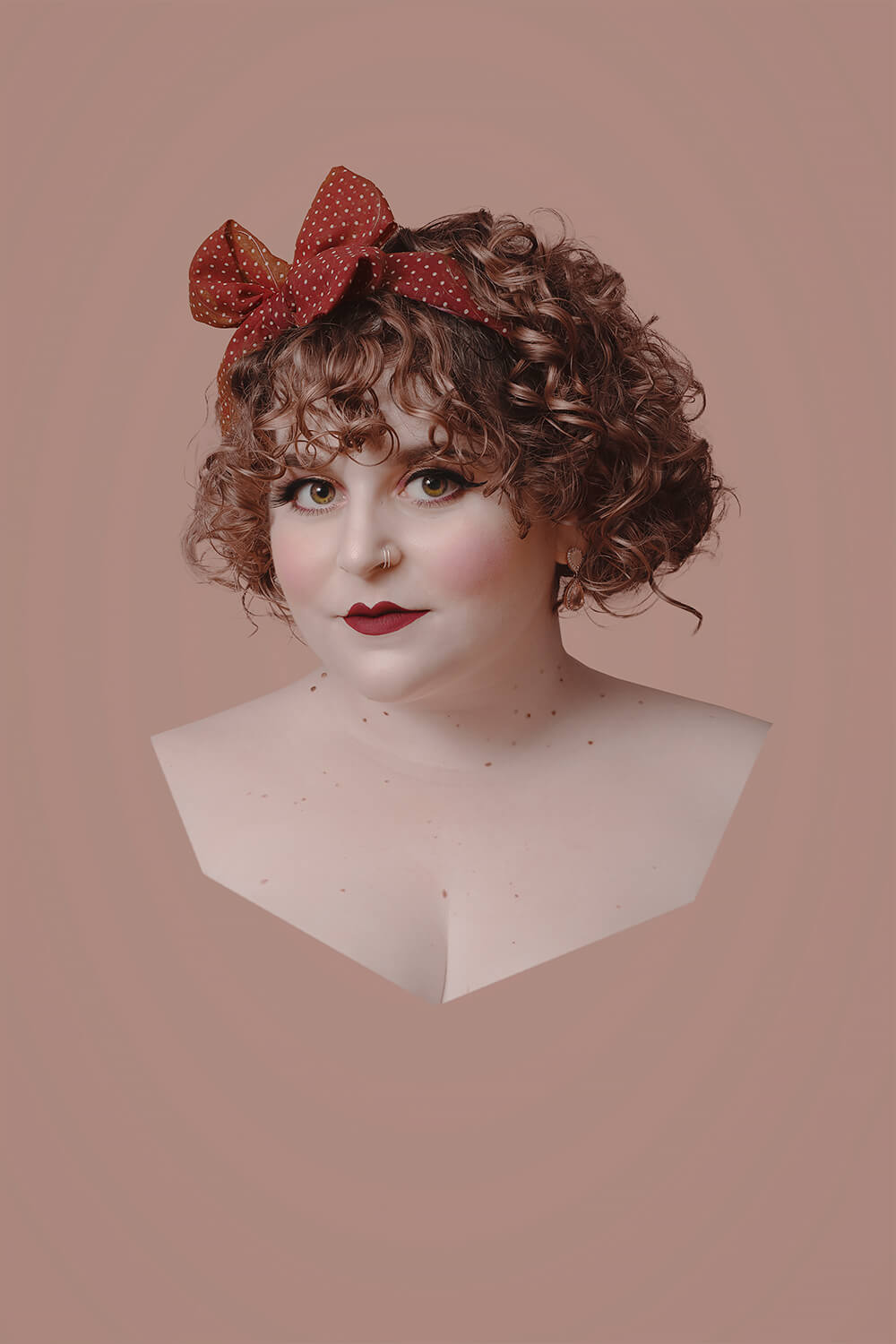
Anna from the series ' Portraits' © Gabriella Aragon
I am an artist with a concentration in photography and experimenting in post-production, color, and light.
I like to work with many mediums and have created props, sets, and accessories to incorporate into my
work. I enjoy learning and exploring which has led me to create many characters in self-portraits and
portraits of others. Traditionally trained in advertising, I also continue to photograph still lifes that explore
natural light. When I am not photographing, you can find me weaving, painting, drawing, sewing, or
gardening.
Gabriella Aragon's Website
Jolana Havelková (Czech Republic)
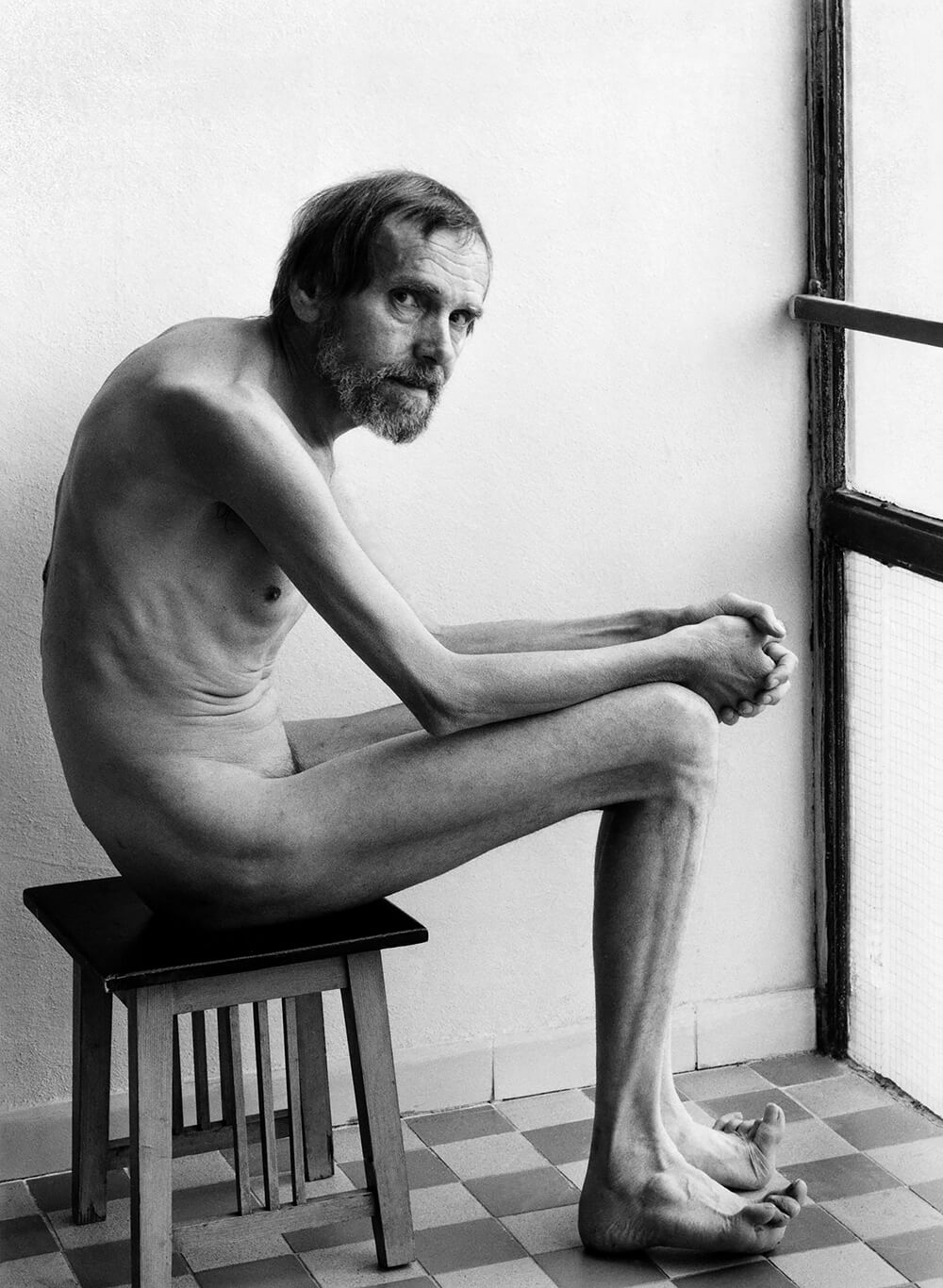
The Images of my Friends series© Jolana Havelková
BW Photograph 1996-2021 from The Images of my Friends series
Since 1996 I have photographed my acquaintances, friends, and relatives. I ask them to sit down, undress
and look into the camera. I don't correct their gestures or poses too much. When I press the shutter I don't
even look at them, I abandon them in that decisive moment.
I try to capture the subjects in their vulnerability, in that initial moment that still contains certain
inexperience, unreadiness, perhaps embarrassment, shame... What is important to me is to capture the
fragile unanticipated moments that couldn't be planned.
The people are surrounded with a minimum of things that could characterize or identify them. In addition
to the place in which they are photographed, the subjects could choose what to sit on.
Jolana Havelková's Website
Arne Wesenberg (Germany)
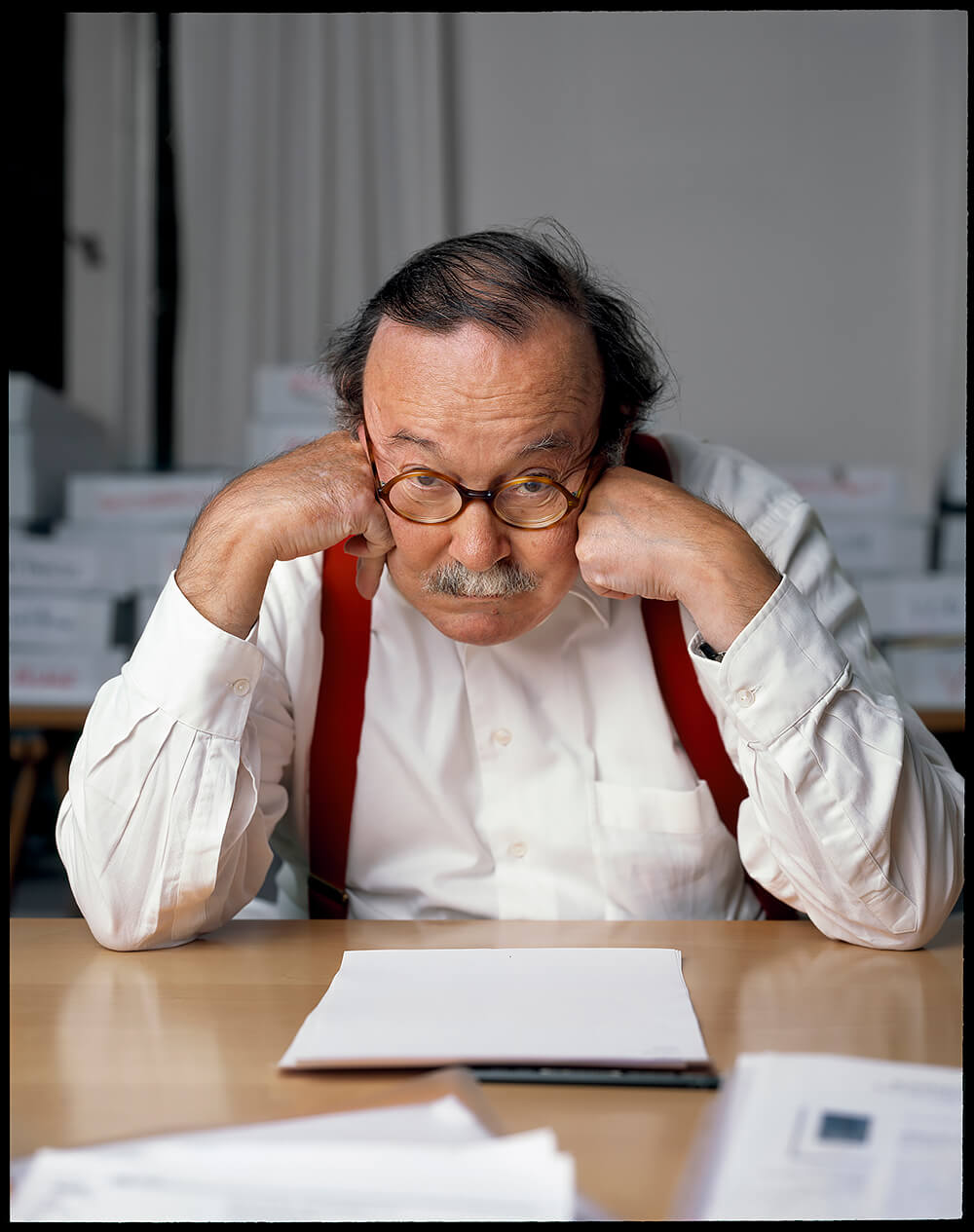
Publisher and Art collector Lothar Schirmer from the series 'Im UnRuhestand' © Arne Wesenberg
'One must be thankful in life', the centenarian master baker Walter Gräper explains. He is one of the over
200 'UnRuheständler' (UnRetired or Restless People), who Arne Wesenberg (b. 1974) portrayed with
his analogue, large-format camera over a period of more than seven years. What they all have in common
is that, despite their old age, they remain in the heart of the community and their professional lives:
craftsmen, artists, and actors well past the age of retirement. Arne Wesenberg photographed these
unretired people across Germany and posed the questions: How does a society develop, in which people
become increasingly older? What comes after a long professional life? The answers provided by the
unretired people are extremely varied – just like their portraits. The reason behind their restlessness is
different for each of them. Some need the money, while others search for personal fulfillment or simply
feel the need to serve the community.
Arne Wesenberg's Website
Peter Caton (United Kingdom)
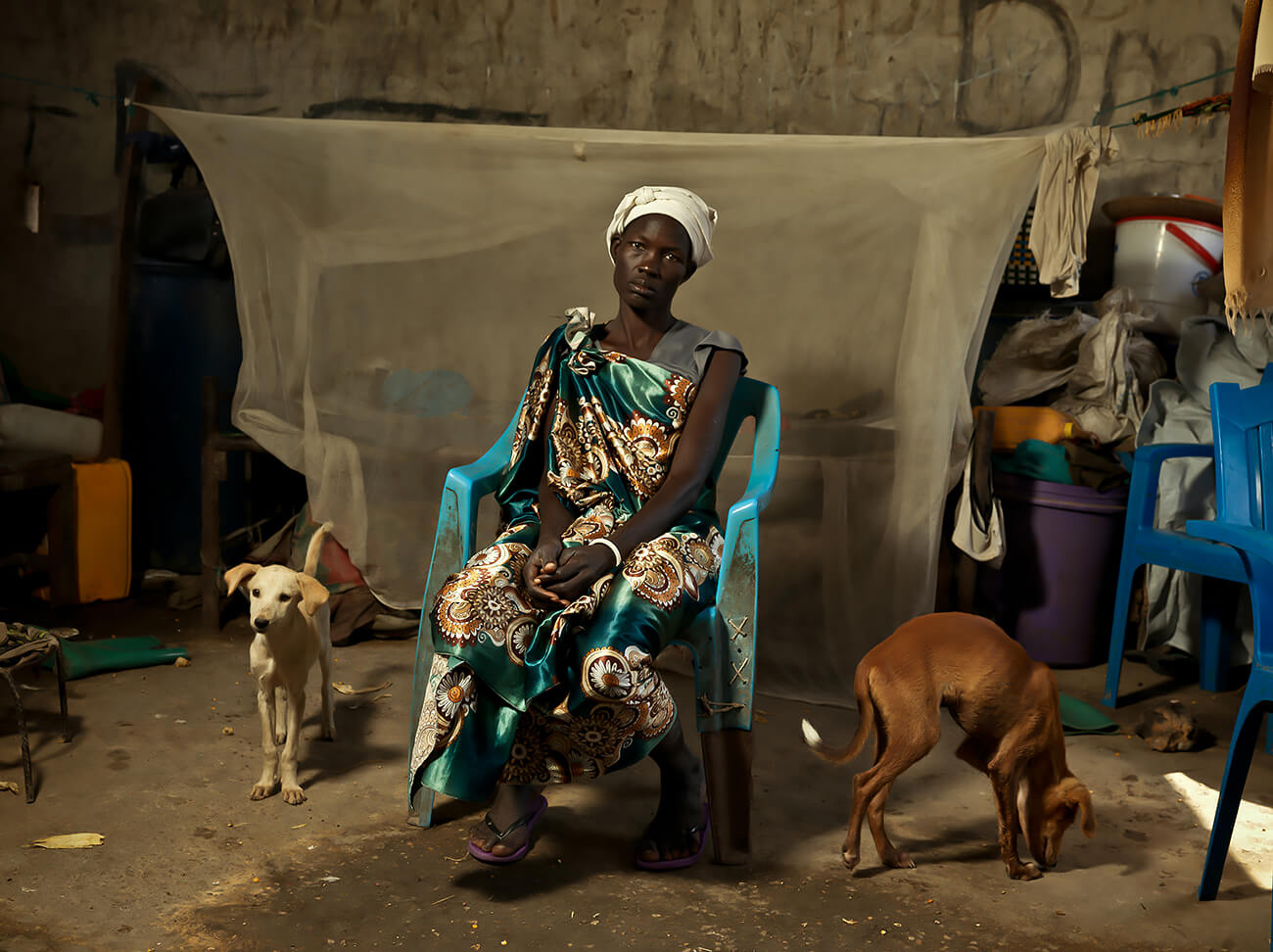
Portrait of Nyapata in make shift shelter from the series 'Unyielding Floods' © Peter Caton
Floods in South Sudan have triggered an alarm for acute food insecurity across the country,
says the international IPC report. Right now, an estimated 6.4 million people in South Sudan face acute
food insecurity - more than half of the country's population. About 1.3 million children suffer from
acute malnutrition, the deadliest form of hunger, exacerbated by the spread of malaria and unsafe drinking
water connected to the floods.
1 million people have been affected since the start of the floods in July; Jonglei State is at the heart of the
devastation. The isolated areas in Fangak county are at Emergency (IPC Phase 4) - acute food insecurity.
Cut-off by the floods, Old Fangak, a remote town north of South Sudan, will starve by the start of 2021.
Peter Caton's Website
Randy Bacon (USA)
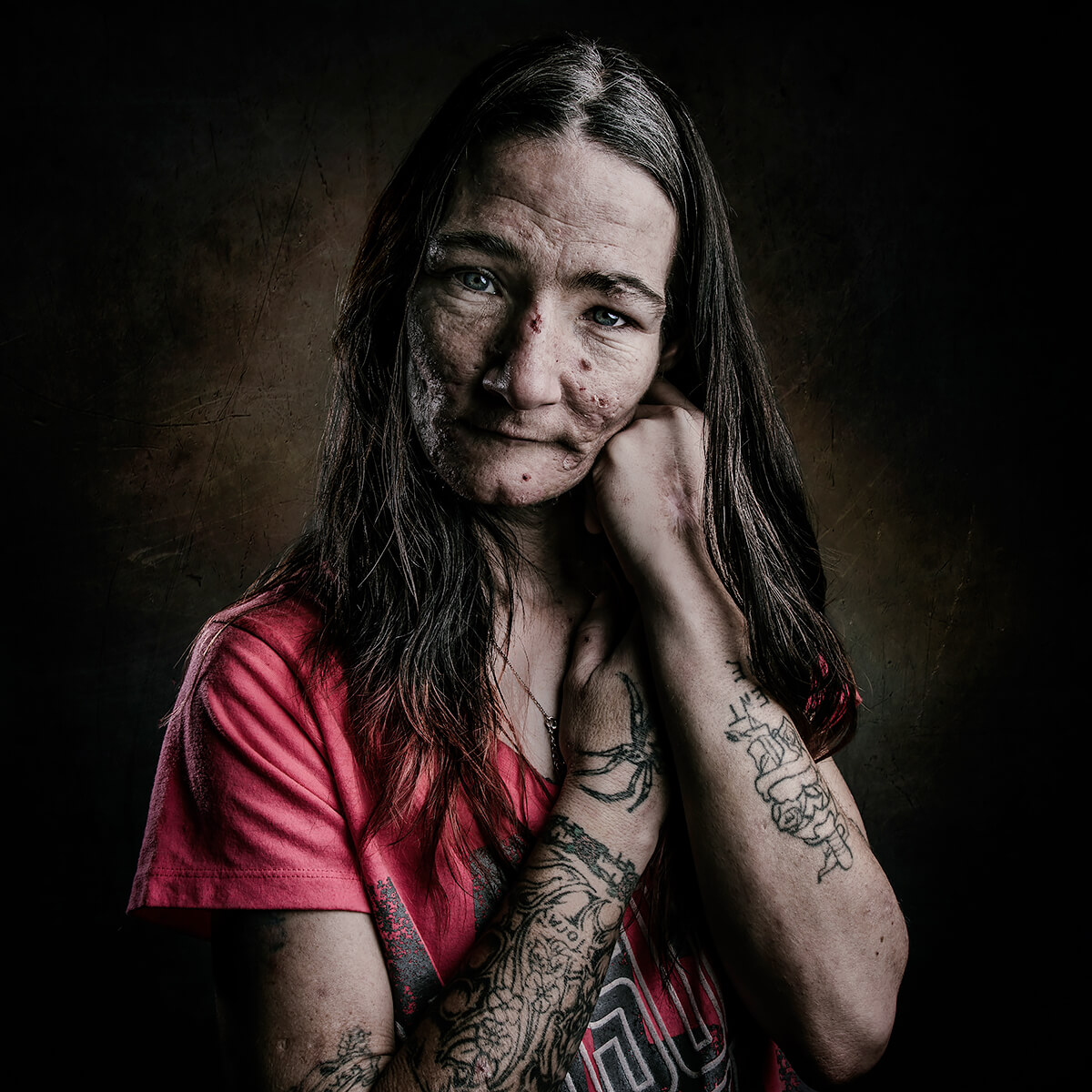
Carol from 'The Road I Call Home' © Randy Bacon
Randy Bacon is a contemporary American photographer. At the core of his work is the ability to present emotive, authentic visual stories of the people he photographs. The Road I Call Home features simple, direct, casual studio portraits of homeless individuals. The portraits emphasize their beauty, identity and integrity as to convey a message, We are all one-of-a-kind miracles. We need to realize how incredibly special and important each 'one' is in this world of over 7 billion people.
Randy Bacon's Website
The top 3 winners will be awarded $1,000.
All winners will have their work showcased on All About Photo Winners Gallery, and published in the printed issue of AAP Magazine #17 Portrait.
